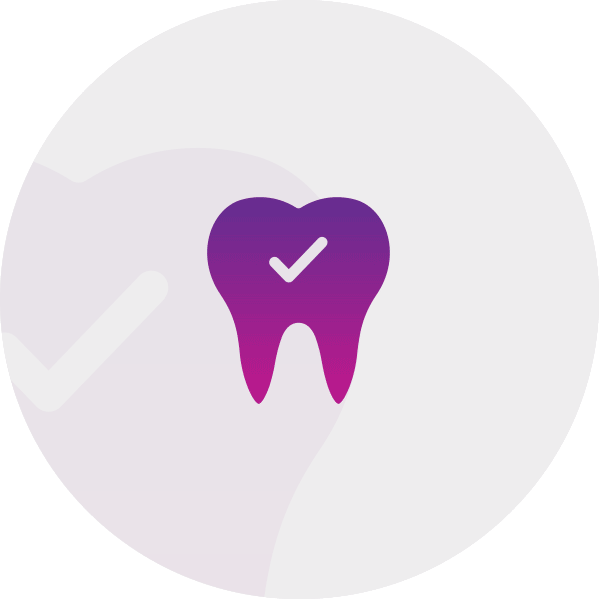Have you ever peeked into your little one’s bedroom at night only to hear an odd noise? It sounds like two hard surfaces rubbing together. Teeth grinding occurs relatively frequently in children. Also called bruxism, it happens when your child grinds his or her jaws and rubs their teeth together. There are a number of reasons why your child may be doing this, from a misaligned bite to a medical condition and even stress. Sometimes, bruxism comes right on its own. But if it persists, it can have a variety of effects on your child’s health and their mouth.
What You Need to Know About Teeth Grinding
A lot of children grind their teeth at some point. Some children grind their teeth so hard that it’s noisy. Others clench their jaws firmly. Typically, the grinding doesn’t wake up the child, but the noise could wake other people up.
Why Is Your Little One Grinding Teeth?
Your baby’s first tooth may pop through as early on as 4 months old. Many babies get their first tooth around the 7-month mark and they’ll get more throughout their first year. That’s when you might realise that there’s a bruxism problem.
While we don’t always know the reasons for children grinding their teeth, some reasons may include:
- A way to relieve pain, like discomfort from teeth or from an aching ear
- Misaligned teeth
- The result of a medical condition, such as cerebral palsy
In older children, bruxism can be a sign of anxiety or stress, like feeling ill or even a change in routine.
The Severity of Bruxism
The range of severity for bruxism varies significantly. Some children only go through minor, short-lived episodes, while others may experience severe teeth grinding with many occurrences through the night.
The more severe the problem is and the more often it occurs, the higher the risk of damage to your child’s teeth. Prolong episodes of bruxism can also lead to dental damage.
The Short-Term Effects
It’s the short-term effects of bruxism that usually signal whether or not your child needs treatment. If your little one shares a room with his or her sibling, the noisy grinding may bother the sibling during the night.
In the morning, your little teeth grinder might complain of pain in or around the ear and a headache. This is due to the pressure of grinding and clenching during the night.
Wear and tear on the enamel of the teeth from grinding can make chewing painful and can make the teeth more sensitive to hot and cold.
If your child is on medication that causes the grinding, it’s time to visit the doctor for a re-evaluation.
The Long-Term Effects
If bruxism is severe and continues for some time, it can have several long-term effects for your child. In fact, it can cause significant damage to the teeth if your child grinds and clenches for an extended period of time. Not only will tooth enamel wear down, but teeth may flatten, fracture or even chip. If your child grinds their teeth for a long period, there’s also the chance of developing TMJ, which can cause further jaw pain and make chewing difficult.
Teeth grinding causes more than just physical discomfort. Studies show that children who grind their teeth regularly have difficulty adjusting to preschool or even trouble being social with others. It’s thought that it might have something to do with bruxism interfering with your little one’s sleep.
In fact, bruxism has a strong association with certain behavioural issues, including Attention Deficit Hyperactivity Disorder.
Signs Your Child Is Grinding Their Teeth
In most instances, you’ll know that your toddler or child is grinding their teeth when you actually see or hear them do it. Most of the time, your child isn’t even aware that he or she is doing it.
Sometimes, a child will grind their teeth even while they’re awake. If you notice this happening, you can help redirect your child’s attention away from the behaviour.
There are also diagnostic tools on the market that you can use at home to help identify if nighttime teeth grinding is happening. Most of the times, though, these devices are better used on adults or in severe cases of teeth grinding.
Treating Bruxism In Children
The good news is that most children outgrow grinding their teeth. But a combination of observation and regular orthodontic visits can help keep the problem in check, especially if you want to avoid costly and complex treatments later on.
If the grinding and clenching is making your child’s jaw and face sore or damaging their teeth, your little one may have to wear a special night guard. These guards are moulded to the child’s teeth to protect the teeth from getting damaged. Mouthguards take a little getting used to, but they are effective.
How You Can Help Your Child
If you notice your child is grinding their teeth or clenching their jaw at night, or if their dentist says something, there are ways to help. Besides a mouth guard, toothpaste that contains fluoride helps to strengthen your little one’s teeth while also fighting bad breath and cavities.
If the teeth grinding is connected to anxiety or stress, you should find ways to help your child relax, whether it’s reading a store before bedtime, practicing relaxation exercises or even working with a therapist if the anxiety is severe. If your child is older, you should try talking to them about what might be bothering them and work together to devise solutions.
Your orthodontist is a good ally when it comes to your child’s teeth grinding. Besides a prescribed mouth guard, we can monitor the situation and help to decrease incidences of clenching and grinding. We can also offer helpful advice and tips to help your child cope and ensure everyone in the house gets a good night’s sleep!
Book a consultation at Medland Orthodontics today and help your little one stop grinding their teeth.






